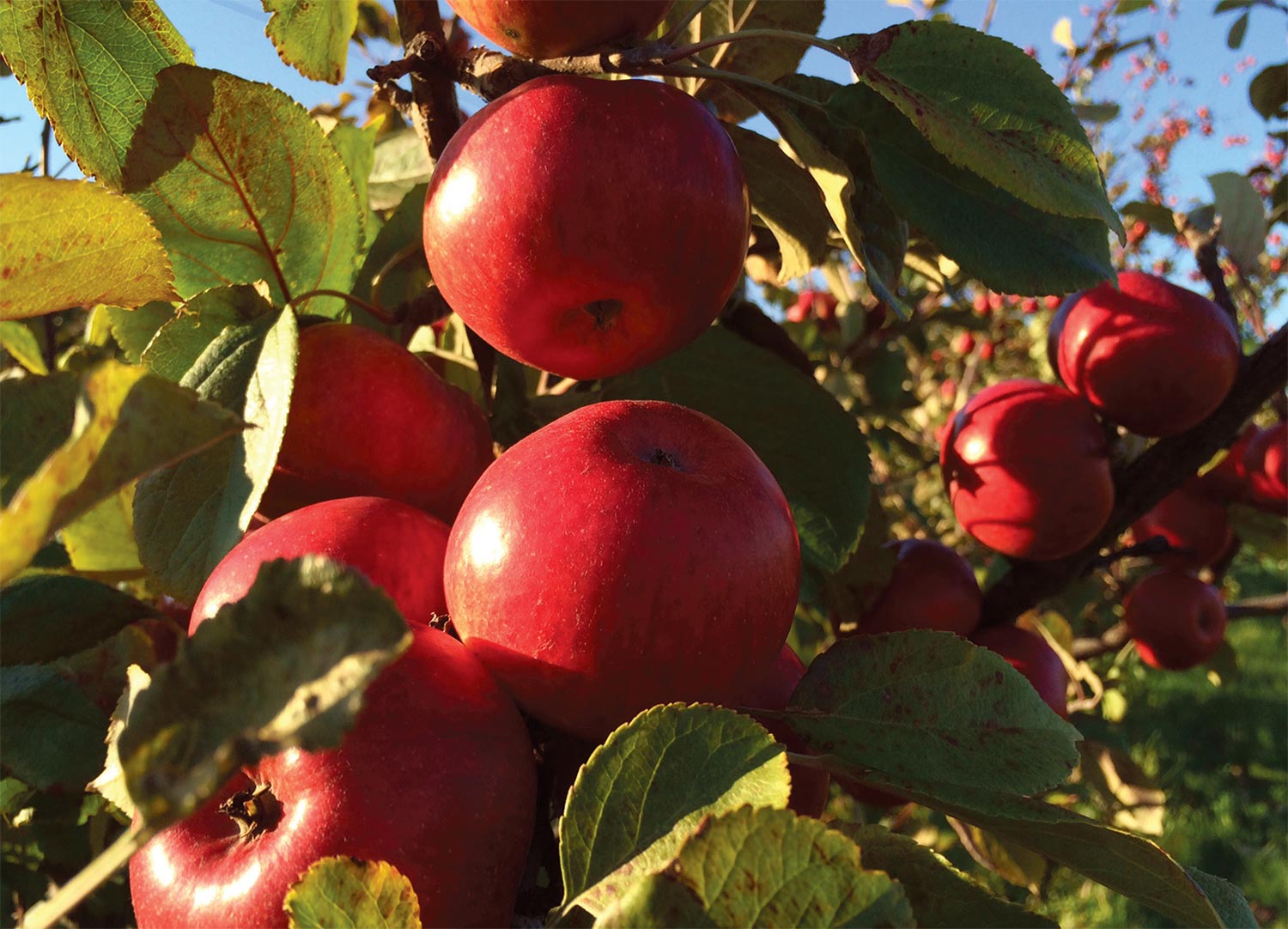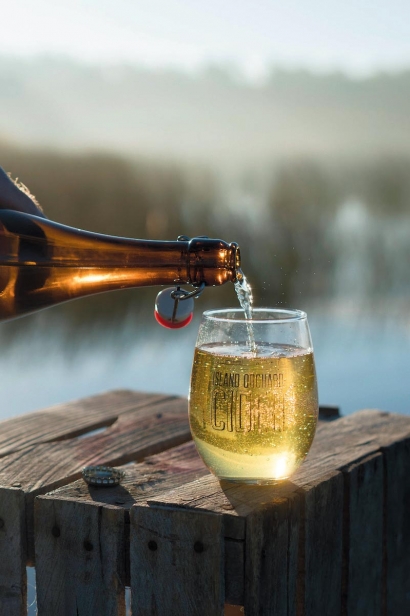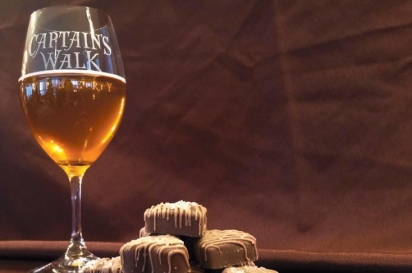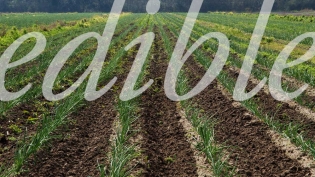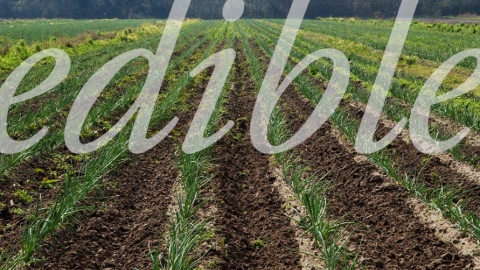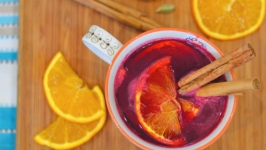HARD CIDER
LOCAL PRODUCERS (& THOMAS JEFFERSON) WILL TELL YOU THE SECRET TO GOOD CIDER
Would there be an America had it not been for hard apple cider? A case could be made that the English colonists may not have survived without the beverage, although that may be a bit of a stretch.
We all know the British like their cider, and it was no different when the early immigrants arrived on our shores and, to their dismay, found there weren’t any apple trees. Making matters worse, no one thought to pack any seeds.
Word got back to England that the berries and grapes found here were all very nice but how on earth was an Englishman going to survive without a cider? It took some time for the trees to grow, but they thrived here and eventually the colonists had enough apples to begin fermenting them into cider.
For the decades that followed, the impact cider would have on American culture and an emerging nation is far more than any of us might comprehend today as we sip our wine and down another beer.
The website mentalfloss.com made a strong case for cider’s significant impact, the most significant fact being that cider provided a safe alternative to suspect drinking water supplies.
Just as some of us relax with an alcohol-tainted beverage after a long day of work, few of us had days like those early colonists. Beer wasn’t readily available, perhaps because they hadn’t stowed any Germans aboard. Eventually, cider became so plentiful that it was often used in bartering. Some might say it became our first form of cash.
While safer to drink than water, when distilled into cider vinegar it became valuable for pickling, certainly vital when surviving a long New England winter.
Wars and politics were far different in colonial days. It’s hard to imagine someone passing through the Battle of Concord selling cider to both British and American troops during a lull in the action – kind of like a beverage cart on the golf course. But that’s what Elias Brown did.
“While there is some activity, we believe that local cider is still an untapped market.”
— Brad Schmiling, von Stiehl Winery
It even played a hand in George Washington’s first election victory. After losing badly in his fi rst attempt to gain a seat in Virginia’s House of Burgesses in 1755, he ran again three years later and won handily after serving up 144 gallons of cider and other libations to help persuade voters. William Henry Harrison built his populist presidential campaign on cider, using the slogan “log cabin and hard cider” to carry him to the White House.
Cider was at its peak of popularity with Harrison’s victory, and then things changed as immigrants from other countries brought with them new traditions and drinks that would eventually supplant hard cider as a public favorite.
But while cider never totally disappeared, it’s only been in more recent years that it is showing signs of regaining some semblance of the prominent place it once held in American history.
“It surprised us when cider in the United States started growing like the craft beer market,” said Yannique Purman, who with husband Bob own Island Orchard Cider. “Americans started to be more exposed to ciders, and they are liked. In particular, people tell us after sampling our ciders how they are not too sweet and instead delicious.”
Brad Schmiling, who along with his brother Aric own and operate von Stiehl Winery in Algoma and Captain’s Walk Winery in Green Bay, feels the cider movement is just getting started in Northeastern Wisconsin. “While there is some activity, we believe that local cider is still an untapped market,” he said. “Just compare the number of wineries and breweries to the number of cider producers.”
Both producers use local apples, which Schmiling says is positive for a couple of reasons.
“Sourcing our apples from local producers is something that helps our consumers to feel good about their purchase; they are supporting local farmers and are not paying larger shipping fees.”
The Schmilings purchase their apples from Hillside Apples in Kewaunee County.
“They have an excellent feel for when to pick apples for optimum flavor,” said Schmiling.
The Schmilings regularly keep Door County Maple Brown Hard Apple Cider on tap and rotate in limited-release ciders.
“Coming this fall will be the return of our Bourbon Barrel Cider. Its smooth vanilla oak character and touch of cinnamon spice is ideal for the season,” said Schmiling. “We have our own way of fermenting cider which goes back to our techniques learned from producing apple wine for the last half century.”
Yannique Purman said it was Bob’s interest in cider that launched Island Orchard Cider.
“He’d become interested when we visited my father in Brittany (France) on family vacations,” she said. “We owned a farm on Washington Island that already had wild apple trees. In 2006 Bob planted various apple cultivars from France, England and America. Now we have 35 types encompassing 2,500 cider apple trees in addition to 250 full-size pear trees. Our ciders also include fruit from neighboring orchards.”
When the Purmans opened their cider house in 2011, they only offered two ciders to taste, but Bob has since created a variety that changes annually. “Out most recent cider is Apple Lavender Cider,” said Purman. “This was developed as an experiment during the summer of 2016.”
The Purmans’ Island orchard follows in the tradition of another famous American forefather.
Thomas Jefferson devoted a large portion of one of his Monticello orchards to cider apples.
Like cider producers in our area today, he was an ardent promoter of what made American cider the finest in the world: His locally sourced apples.


